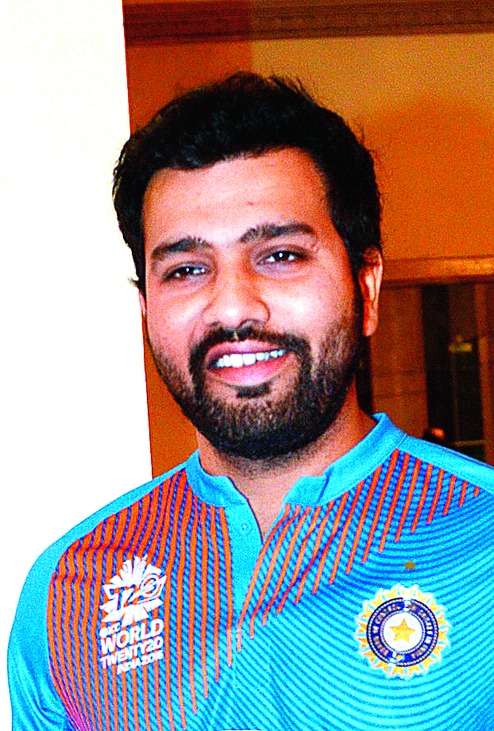
New Delhi: Rohit Sharma says making an international comeback after a six-month injury-forced lay-off is easier said than done.
Rohit was out of competitive cricket for six months (from October 2016 to April 2017) after a hamstring injury. But since his comeback in the ODIs during the Champions Trophy, he has scored three hundreds in 10 games apart from a few half centuries.
"Comebacks are not at all easy. After a major surgery, the difficult part is to conquer the inner demons. It's all in the mind. Only an individual can overcome his fears. My batting may look easy to the eye but trust me, it's not that easy," Rohit said.
Did he have fears that may be while stretching for a run or coming down the track to a spinner, he might get injured again? "The best part that happened to me was IPL started just after I completed my rehab.
"So while captaining Mumbai Indians and taking those on- field decisions, I couldn't think about what happens if I get injured. And when I was playing for India, my mind became blank while batting. There was no place for any negativity," said the 30-year-old, who has 5,737 runs from 163 ODIs, including 13 hundreds.
His supple wrists and sublime strokeplay may be a delight for fans but there is a lot of homework involved. He explained how he successfully read mystery spinner Akila Dananjaya after his six-wicket haul in the second ODI against Sri Lanka during the recent away series.
"The half-century was special but I didn't face Dananjaya much during that match. I was out only one over after he was brought into the attack. But in the next two games, I got hundreds and I had no problems playing him."
So what did he do differently? "I realised that the speed of his googly was on the slower side while leg-breaks were faster. His off-break was easily negotiable. One thing we must know about these mystery spinners - they are bound to bowl loose deliveries and Dananjaya is no different."
He is expected to play a vital role in the upcoming series against Australia but the Indian vice-captain believes in preparing for "conditions rather than opposition".
"My process of preparation is based on conditions, not opposition. It won't be any different when we face Australia," Rohit said.
"In international cricket, the core group in most of the teams remain same. So you know what's expected, but they will operate in different conditions which is why the homework about conditions is the key. You need to know the shots you can play on particular pitches, how you want to plan your innings."
Asked if Mitchell Starc and Josh Hazlewood's absence would affect Australia's chances in the upcoming limited-overs series, Rohit said: "Of course, Starc is a quality bowler and his presence makes a difference but most of the Aussie boys have played IPL and are familiar with Indian conditions. They are a quality side and we can't take them lightly."
His captain Virat Kohli often reckons that Rohit is the hardest hitter of the cricket ball in the Indian team. "It's nothing like that. I know one thing. If your shot crosses the ropes, you get six runs, whether the ball travels 75m or 110m.
"So it's not always about power but about timing, body balance and position."
He is new to vice-captaincy and is enjoying the responsibility. "It's an honour. My job is to help Virat on the field. He is the captain and whenever he looks up, I should be around to complement him and help him as much as I can," he said.
Rohit feels cricketers have a short shelf life and they shouldn't complain about burnouts.
"Cricketers have limited careers, we cannot play till 60, 70. We have to make the most of the time we have. There can't be excuses of burnout, tight match schedule."
Asked whether he would like to take a break at some point given the cramped schedule, the Mumbai batsman who holds the record for the highest ODI score of 264, said: "Not really. I am coming back from an injury. I don't see myself doing that, I want to play as much as possible. Whenever I get the opportunity I want to be there on the field."
He also said cricketers these days are used to tight schedules.
"We are all used to tight schedules. It is not happening now, it has been happening for a while now. We all understand how to take care of our bodies and there are specialists (physiosrainers) to help us out," said Rohit.










